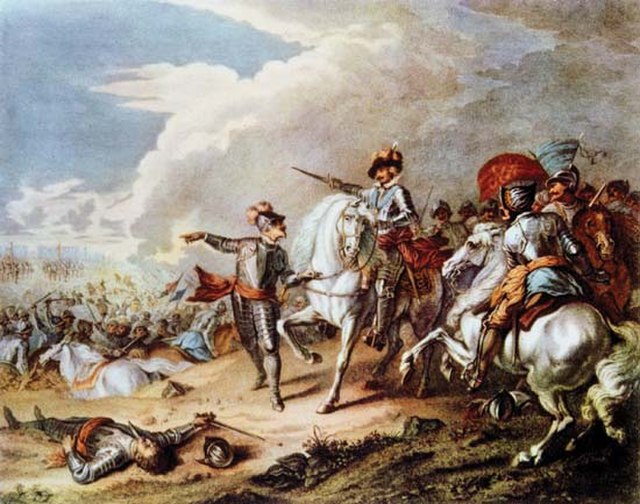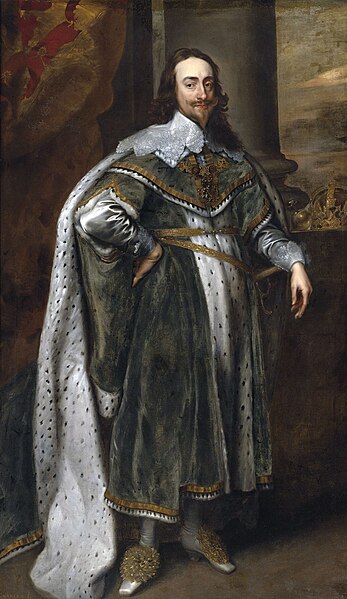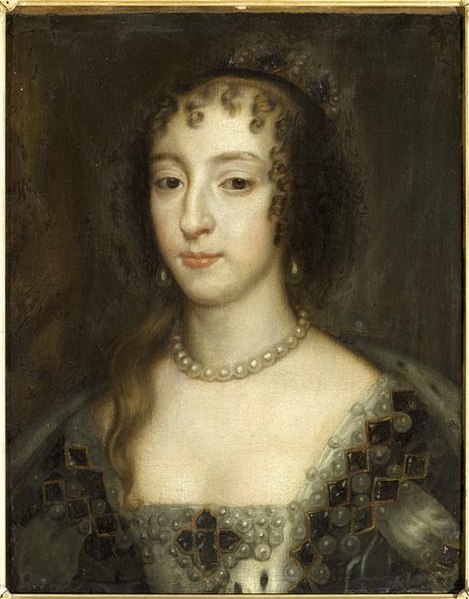Sir John Hotham, 1st Baronet
Sir John Hotham, 1st Baronet of Scorborough Hall, near Driffield, Yorkshire, was an English Member of Parliament who was Governor of Hull in 1642 shortly before the start of the Civil War. He refused to allow King Charles I or any member of his entourage to enter the town, thereby depriving the king of access to the large arsenal contained within. Later in the Civil War he and his son John Hotham the younger were accused of treachery to the Parliamentarian cause, found guilty and executed on Tower Hill.
Hotham in his role as Governor of Hull
Commemorative plaque, Beverley Gate, Hull
Monument to Sir John Hotham in St Mary's Church, South Dalton (near Scorborough), supported by figures of the cardinal virtues
The English Civil War refers to a series of civil wars and political machinations between Royalists and Parliamentarians in the Kingdom of England from 1642 to 1651. Part of the wider 1639 to 1653 Wars of the Three Kingdoms, the struggle consisted of the First English Civil War and the Second English Civil War. The Anglo-Scottish War of 1650 to 1652 is sometimes referred to as the Third English Civil War.
The Battle of Naseby, 14 June 1645; Parliamentarian victory marked the decisive turning point in the English Civil War.
Charles I believed in the ‘Divine right of kings’; painting by Van Dyck
Henrietta Maria, painted by Peter Lely, 1660
A sitting of the Long Parliament, 1640







